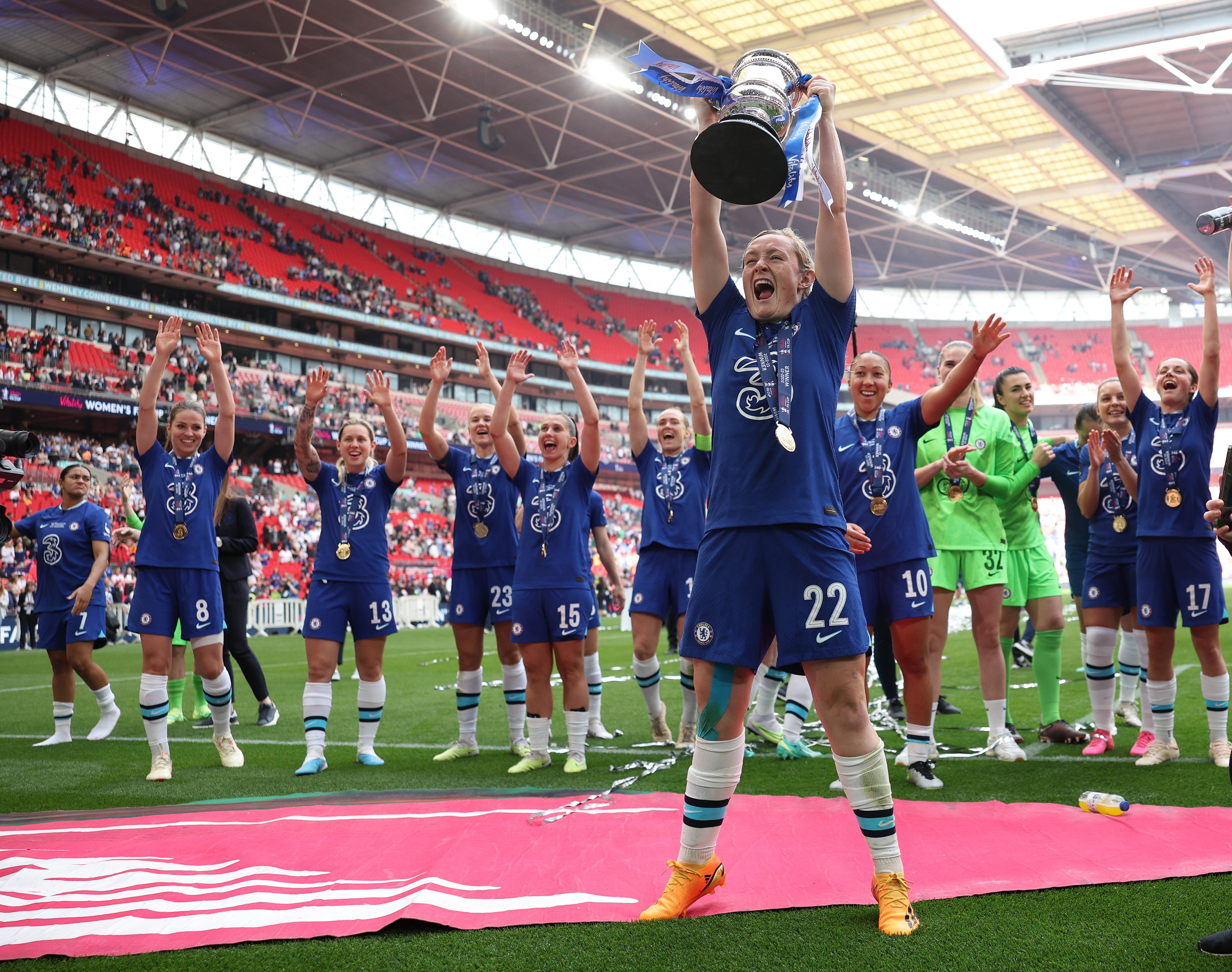Chelsea won the competition last season
Sign up to Miguel Delaney’s Reading the Game newsletter sent straight to your inbox for free
Sign up to Miguel’s Delaney’s free weekly newsletter
Thanks for signing up to the
Football email
The prize fund for this season’s Women’s FA Cup has been doubled to £6m, the Football Association has announced.
The FA board has approved a £3m increase compared to last season, which means a prize pot of £44,000 per match at the third-round stage, up from £12,500 in the same round last season.
Winning the final will now earn the victors £430,000 compared to £100,000 last season, the FA said.
It is the second consecutive season in which the prize pot has increased, with last season’s uplift focused on the money available at the earlier stages of the competition.
The FA’s director of women’s football, Baroness Sue Campbell, said: “Doubling the prize money showcases the FA’s clear commitment to the future of the Women’s FA Cup and will help us maintain its stature as the most prestigious domestic women’s cup competition in the world.
“That’s why we’re delighted to be making a second successive increase to the prize fund, ensuring that as clubs progress through the competition they receive financial rewards that will empower them to invest in their own futures.
“Ultimately, we want the women’s competition to receive the same prize money as the men’s, and this new increase is a positive step in the direction of achieving that long-term ambition.”
Chelsea claimed the trophy last season but would earn £430k rather than £100k if they defend their crown
The men’s FA Cup prize fund for the current season was confirmed in June, with £2m on offer for winning the final and £1m for the losing finalists. Those teams would also benefit from payments for progressing through the earlier rounds.
FA chief executive Mark Bullingham said last month that changes to the future format of the Women’s FA Cup were being considered.
“We’ve done a really good job of growing the final as an event. When I first started working with the FA it was an event that got less than 20,000 and wasn’t even at Wembley,” Bullingham said at the Leaders Week conference at Twickenham in October.
“We’re now selling out Wembley, and that’s a big event for us in our calendar. So the final is going really well.
“Our challenge now is to grow the rest of the competition. Within that, we don’t always feel that the women’s competitions have to follow the format of the men’s, so we’re looking at how we could at least evaluate some potential changes that may be more creative and allow the competition to have its own structure and format.
“So we’re evaluating those at the moment with the view to what would appeal to fans more, what would appeal to broadcasters more and how do we grow even more quickly?
“Like the rest of the women’s game, we will grow it. It’s just how do we accelerate it even faster?”
Source: Read Full Article


